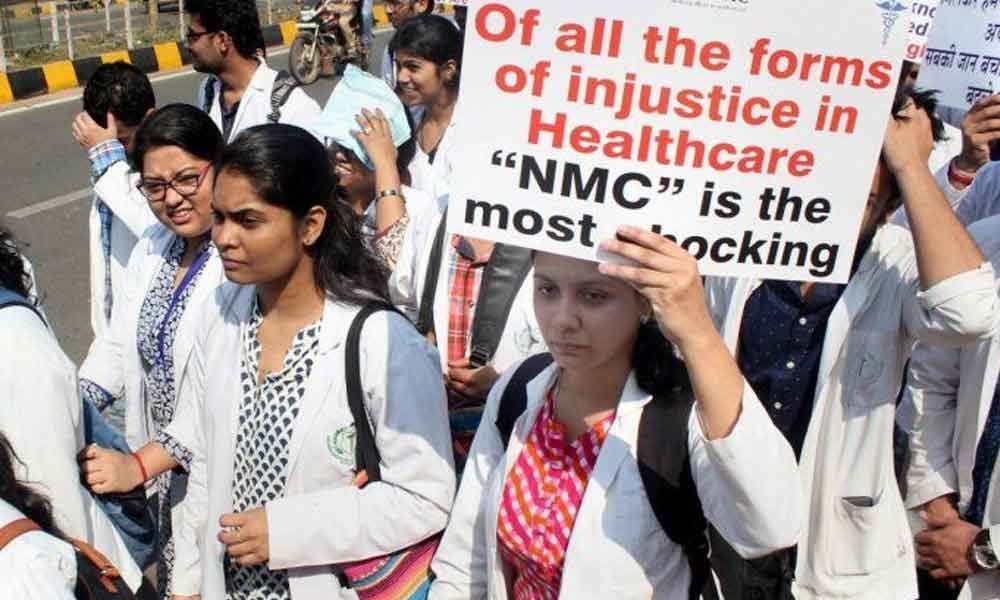The medical education system in India is ready to witness important changes as the National Medical Commission Bill, 2019 heads for implementation.
Last week, the Rajya Sabha passed the bill with two amendments:
- Increased representation from state medical council and vice-chancellor of medical universities
- Referred it to the Lok Sabha, which too passed the amendments on Monday
- The bill will now go to the President for his assent
The NMC bill will have the following implications if passed through the parliament. Please note as of now it has the approval of cabinet only.
1. Once the bill is passed in the Parliament, the Common final year MBBS exam will be known as the National Exit Test (NEXT), which will then serve as a licentiate exam for entrance to PG medical courses and as a screening test for foreign medical graduates.
2. The Bill states that the national entrance test, i.e NEET, common counseling and NEXT shall also be applicable to Institutes of National Importance (INIs) like AIIMS to have common standards in the country.
3. The National Medical Commission will regulate fees and all other charges for 50 percent seats in private medical colleges and deemed universities.
4. The Medical Assessment and Rating Board (MARB) will conduct an assessment to the medical colleges and develop a system of ranking of medical colleges which would enable the students to choose the medical college wisely.
This bill will help students pursuing MBBS from Foreign medical colleges as they will have to give a single exam for screening and entrance for PG.
It will cut down the fees of deemed and private universities.
The syllabus for the next exam has not been announced so any speculation regarding the same would be false.
What is NMC bill?
The bill attempts to set up a regulatory body called the National Medical Commission (NMC) in place of the tainted Medical Council of India (MCI).
According to the government, the NMC bill will provide for a medical education system that improves access to quality and affordable medical education, and guarantee availability of adequate and high quality medical professionals in all parts of the country.
The NMC will bring in changes in the way medical colleges are assessed, MBBS entrance is held and bring in new provisions such as exit exams and regulation of course fees in private colleges.
Section 15 (1) of the bill proposes a mutual final-year MBBS exam, the National Exit Test (NEXT) before an individual starts practicing medicine and for getting admission to post-graduate medical courses and for enrollment in the state register or the national register.
There will also be a screening test for foreign medical graduates.
There will be single National Eligibility cum Entrance Test (NEET) to admit students to all medical colleges including AIIMS and JIPMER along with a common counselling.
Functioning of NMC
- Framing policies for regulating medical institutions and medical professionals.
- Assessing the requirements of healthcare-related to human resources and infrastructure.
- Framing guidelines for determination of fees for up to 40 percent of the seats in the private medical institutions and deemed universities which are regulated as per the Bill.
Qualifying examinations
There will be a uniform National Eligibility-cum-Entrance Test for admission to under-graduate medical education in all medical institutions regulated by the Bill. There will be a National Licentiate Examination for the students graduating from medical institutions to get the licence to practice.
This examination will also serve as the basis for admission into post-graduate courses at medical institutions.
The NMC can permit exceptions from National Licentiate Examination in certain cases. Foreign medical practitioners will be allowed temporary registration in India in such manner as may be prescribed.
The NMC, the Central Councils of Homoeopathy, and Indian Medicine can approve bridge courses for the practitioners of AYUSH to enable them to prescribe modern medicines as prescribed in the bill.

